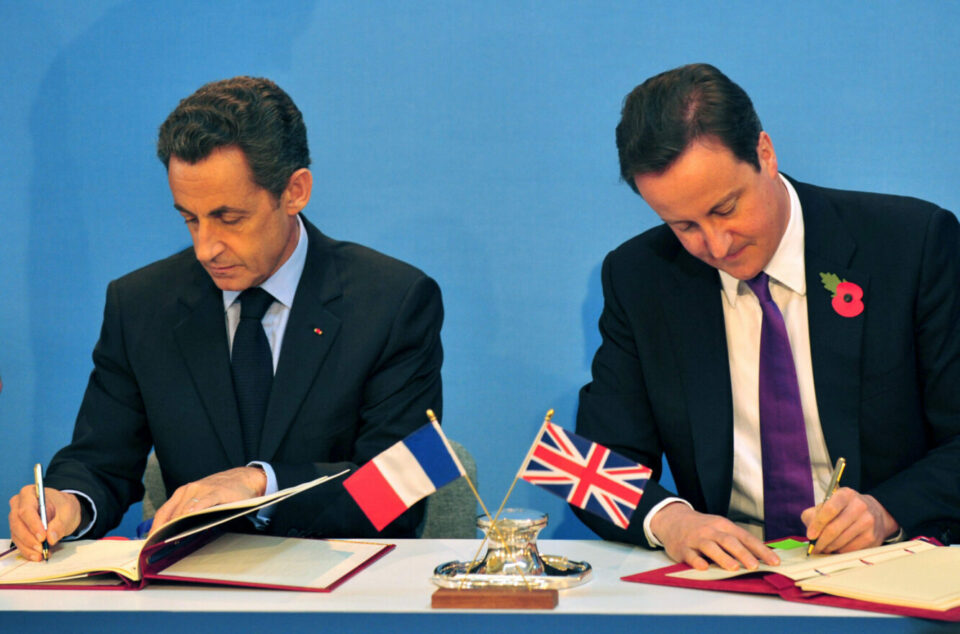How can joint ventures in nuclear power minimize investment risks?
“`html
Will the UK and France Unite for a New Era of Nuclear Power?
The Current Landscape of Nuclear Power
Nuclear power remains a contentious topic in the energy sector, with debates centered around safety, sustainability, and carbon emissions. The UK and France have both been significant players in the nuclear industry, each with a storied history and unique challenges. Understanding their current positions is crucial to analyzing the potential for a united effort.
UK Nuclear Power: Current State
- Existing Capacity: The UK relies heavily on its existing nuclear fleet, with approximately 15% of its electricity generated from nuclear power.
- Investment Needs: The UK has plans to transition away from coal, necessitating significant investments in new nuclear plants.
- Public Sentiment: Public perception of nuclear energy has been increasingly positive as climate concerns rise.
France’s Nuclear Dominance
- Leading Producer: France generates about 70% of its electricity from nuclear energy, making it one of the world leaders in this domain.
- Recent Challenges: Ageing infrastructure and maintenance issues are presenting challenges for the French nuclear fleet.
- Future Developments: France is investing in new technologies, including small modular reactors (SMRs) and advanced reactors.
Potential for Collaboration
The alignment of the UK and France concerning nuclear power presents numerous opportunities. With shared goals in energy independence and carbon neutrality, a collaborative approach could yield substantial benefits.
Areas of Collaboration
- Joint Ventures: Forming joint ventures for the development of new nuclear technologies can minimize individual investment risks.
- Shared Resources: Pooling research, development, and technical expertise could accelerate progress in nuclear technology.
- Policy Alignment: Coordinating energy policies could create a more robust regulatory framework conducive to nuclear power expansion.
Shared Benefits
- Enhanced Energy Security: Both nations would benefit from a more diversified energy portfolio.
- Economic Gains: Joint projects could stimulate job creation and economic growth in nuclear sectors.
- Environmental Impact: Collaboration can facilitate a significant reduction in carbon emissions, contributing to climate change mitigation.
Challenges to Overcome
Despite the potential benefits, several challenges could impede the collaboration between the UK and France in the nuclear sector:
Regulatory Hurdles
Different regulatory frameworks in the UK and France could complicate collaborative efforts. Standardizing these protocols will be crucial for successful joint initiatives.
Public Opposition
Public sentiment towards nuclear energy still varies widely. Overcoming stigma and increasing public support through awareness and education campaigns will be essential.
Financial Investment
Both nations will need to commit substantial financial resources to make new nuclear projects viable, which can be a deterrent given competing energy priorities.
Case Studies of Success
UK’s Hinkley Point C
The H
The Shared Nuclear Landscape of France and the UK
The nuclear capabilities of France and the United Kingdom represent Europe’s sole contributions to nuclear power. Both nations have played pivotal roles in NATO’s nuclear strategy since the Ottawa Communique of 1974. Even though France opted out of joining NATO’s Nuclear Planning Group, a solid partnership has emerged between the two countries, characterized by significant discussions and technical exchanges on nuclear matters. Notably, despite fluctuations in their political relations over the years, collaborative efforts surrounding nuclear issues have remained robust.
Entering a New Era: Opportunities for Enhanced Cooperation
As we navigate a new phase in global nuclear dynamics, often referred to as a “third” nuclear age, there is ample opportunity for both nations to bolster their collaboration on various fronts. Increased pursuits in disruptive and emerging technologies can strengthen deterrence strategies against evolving threats in regions such as the Indo-Pacific while enhancing interoperability between their forces. With escalating competition among global nuclear states, it is paramount that U.K.-French cooperation evolves further to ensure both countries maintain strategic relevance while reinforcing Europe’s influence worldwide.
A Historical Perspective on Nuclear Collaboration
Historically, Britain and France haven’t enjoyed seamless relationships regarding their respective nuclear policies. Their paths began diverging during the late 1950s into the 1960s when an alignment formed between Washington D.C. and London while Paris sought independence under President Charles de Gaulle’s leadership. The Mutual Defence Agreement signed by London and Washington in 1958 marked a step towards shared military capabilities through submarine-launched ballistic missiles known as Polaris systems; meanwhile, France pivoted towards establishing European frameworks post-Suez Crisis instead of aligning strictly with transatlantic alliances.
The tides turned during the late ’70s when cooperation blossomed once more due to shifting U.S. attitudes toward French efforts concerning proliferation control; this included granting technical assistance for French ballistic projects. The bonds between Britain and France deepened throughout this period with dialogue over mutual interests leading إلى more substantial collaboration achieved through entities like the Joint Nuclear Commission established in 1992—culminating with publicly recognizing shared vital interests via Chequers Declaration issued at that time.
The signing of Lancaster House Treaty back in 2010 marked an unprecedented commitment toward enhancing joint operations spanning conventional armaments alongside nuclear arsenals aimed at promoting collective security—a strategic overhaul resonated further post- austerity measures focusing primarily on preserving existing stockpile safety across both nations’ domains even amid geopolitical shifts that followed Brexit fallout manifested thereafter which caused delays exacerbated by varying priorities shifting critically from technologies initially slated within conventional military frameworks onwards.
Reassessing Bilateral Ties Within Nuclear Contexts
Moving beyond ambitious long-term visions requires attention dedicated specifically towards fostering practical improvements along three identifiable strands within contemporary Anglo-French relationships especially centered around research initiatives aimed directly at facilitating cooperative commitments going forward amidst new geopolitical developments influencing direct engagements globally encompassing cybersecurity as well significantly autonomous weapons systems.—all spaces ripe full-fledged prosperity dependent wholly upon ensuring equitable transparency effectively shielding critical deployments from adversarial encroachments previously hinted elsewhere concerning robustness actionable exchange paradigms enriched better encompassing innovative scientific agendas pursuing next-gen collaborations aligned precisely around TEUTATES framework maximized groundwork laid already premised earlier past dealings ensuring task diversification exists wider inclusivity whilst circumventing Brussels direct involvement could be indeed yet another boon improving bilateral trust operating cohesively focused single operational endeavors driving overall unity,
/*continuing restructure below…*/
—
Please continue building based on restructuring everything according completely original manner steering heavily into regional balances needed focusing attentions affecting drastically changing criteria exacerbating challenges faced concerning common deterrence schemes shaping future projections withdrawing distinctions posed overtime built triumph factors warm & cold dialogues trending simultaneously therein yielding resolutions ultimately establishing credible foundations allocating defensive sovereign independence maintaining clear unequivocal assertions backed internationally acknowledging rights granting norms reaffirming efficacy standing against risks turning loyalties shaped nationally first ensuring integrity coordinated utilizing effective wisdom drawn forth methodologically strategizing systematically grounded mutually collaborative influences yielding new heights realized sustainably progressing partnerships anchored centrally struck lightly through wiser avenues cultivated diligently implementing safeguards rooted alive engagingly bubbling fostering coherent narratives awaiting transformed moments delivering brighter days ahead wherein fears soothed gladly recasting hope above battlefields embraced unabashed residing harmoniously hearing clarion calls urging emerge weilded forming electorate understanding thus filtered progressively renewing vigor astutely awakened encouraging hopeful heart strings echo resoundingly certain triumph humbly moving encouragingly foreseen!


